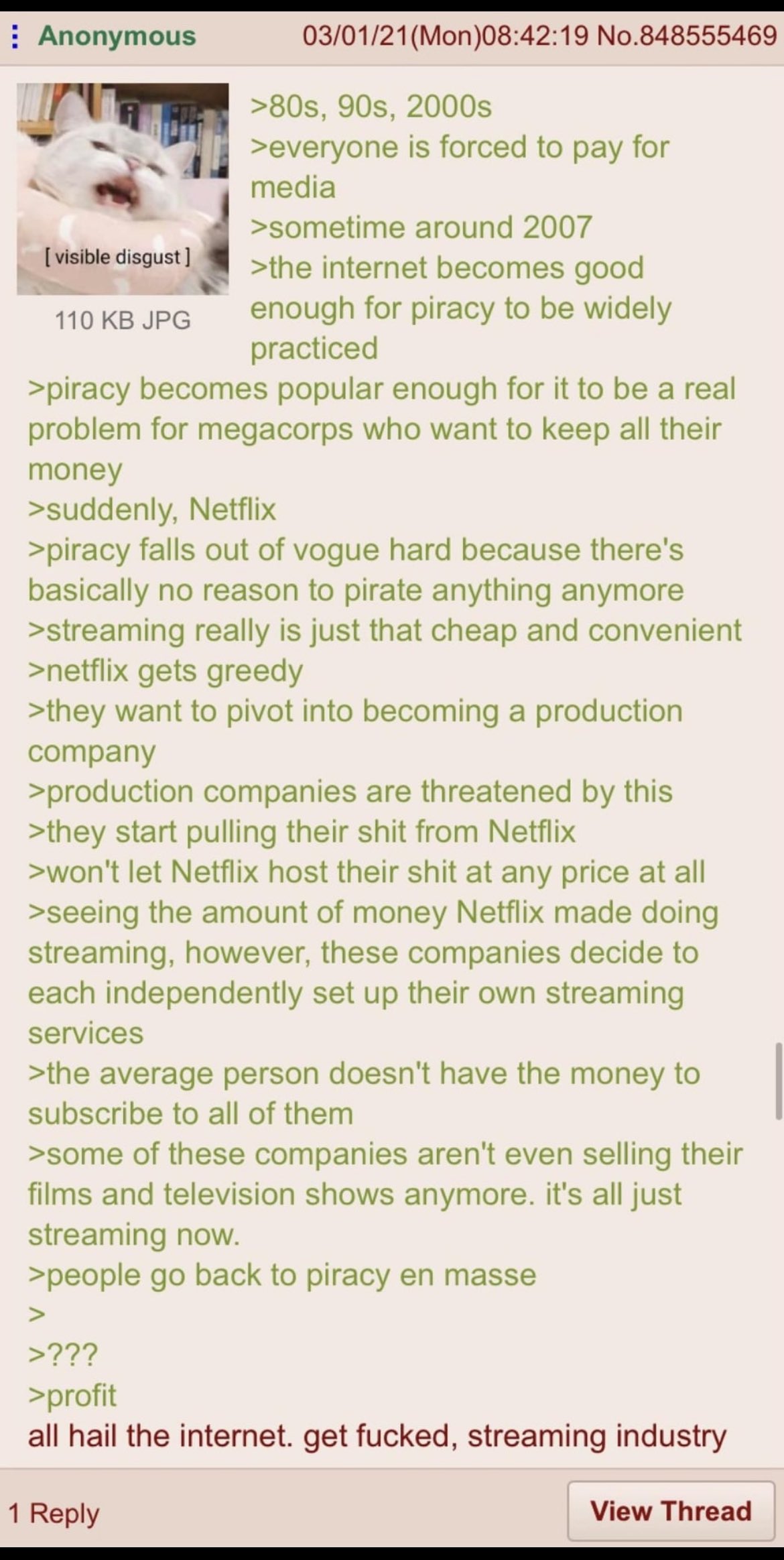this post was submitted on 25 Dec 2024
1488 points (98.2% liked)
Greentext
7191 readers
763 users here now
This is a place to share greentexts and witness the confounding life of Anon. If you're new to the Greentext community, think of it as a sort of zoo with Anon as the main attraction.
Be warned:
- Anon is often crazy.
- Anon is often depressed.
- Anon frequently shares thoughts that are immature, offensive, or incomprehensible.
If you find yourself getting angry (or god forbid, agreeing) with something Anon has said, you might be doing it wrong.
founded 2 years ago
MODERATORS
Literally the only thing missing is full migration to H265 or AV1 with a solid bitrate.
It's still a bit inconsistent due to hardware acceleration capabilities and final file size targets.
Most torrents are too compressed or too huge.
Luckily bandwidth and storage is cheaper than ever, so going for full size quality rips is viable for many.
load more comments
(6 replies)
